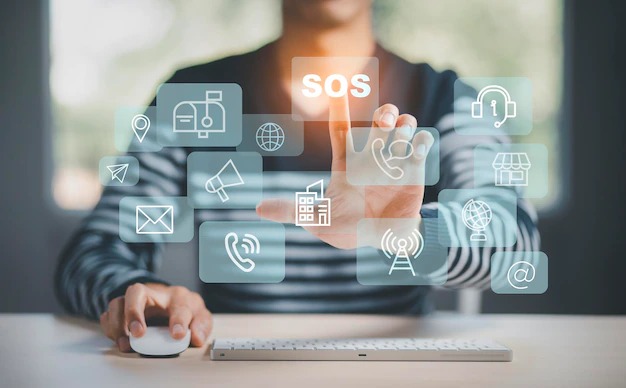How many times have we paid attention to the oxygen mask instructions when flying? The first time we hear it, we are all ears. As the travel becomes frequent, we tend to turn a deaf ear to the same instructions. Possibly because we have either memorised it or feel oh, its okay, we are safe, nothing is going to happen to us. Emergencies happen to others, not to us.
However, hidden in this set of instructions is a very critical message – “Should the cabin lose pressure, oxygen masks will drop from the overhead area. Please place the mask over your own mouth and nose before assisting others.”
Read that again. Help yourself first before helping others.
Of course, the rationale is that oxygen masks are deployed in situations where the oxygen level has dropped dangerously low. If you don’t wear your oxygen mask, you are likely to lose consciousness. And then you are very unlikely to be in the right fit state to help anyone.
The need to help others
The need to rush to help and support is at times almost a default action. We feel good we were of some help to someone. We want to share our knowledge. We pat ourselves. We glow in the aura of positivity that surrounds us. So much so, that we forget all about ourselves. We want to be part of the solution, but when we rush to help someone, it does not occur to us that in our hurriedness we land up becoming part of the problem instead.
Many times, we provide inputs without being knowledgeable of the subject. This happens a lot in our professional lives as well. Colleagues who support us are our well-wishers. But in their quest to provide inputs they forget that they are not the experts in that subject.
…and the fall out of it
The field of communications and PR require a specific set of skill sets that goes beyond mere understanding of the business or having media contacts.
As we become more integral to the business and top management, we also land up facing queries, questions, counter arguments and at times, lack of understanding of the depth and breadth of our profession. It is like the airplane emergency situation. People want to help but they do not have the skill set to do so. Nor the knowledge and expertise of a communicator.
Specialised functions like communications and reputation management work at a very different level. People associated with it understand the business nuances and at the same time are trained to balance it with what the media out there really seeks. Often, both can be two different things entirely!
Sensitisation helps
What works in situations like the above is sensitisation to how communication functions and understanding of the media out there. Regular meetings with the business leads provides an excellent opportunity for communicators to play out various scenarios and get an organisational buy-in.
Scenario planning when backed with facts can be a very powerful tool to push one’s point across. It has the potential to change the narrative and bring in a high level of preparedness not just within the communication function but also the businesses.
The preparedness
Communicators have to be futuristic in their outlook and need to anticipate the outcome of each and every scenario showcased. Best example of this is the crisis management manual that communicators prepare in collaboration with businesses and other supporting functions.
A well-prepared crisis management manual outlines in detail not just the point of action at every step but also puts in accountability and responsibility for each step. This manual should be the go-to document for reference when a crisis is eminent.
Of course, not all crises are known or anticipated. The knowledge and skill that a communicator brings to the table and the preparatory drill undertaken at the organisational level can however control the emergency situation and bring in a favorable outcome.
The views and opinions published here belong to the author and do not necessarily reflect the views and opinions of the publisher.



Be the first to comment on "The emergency situation"